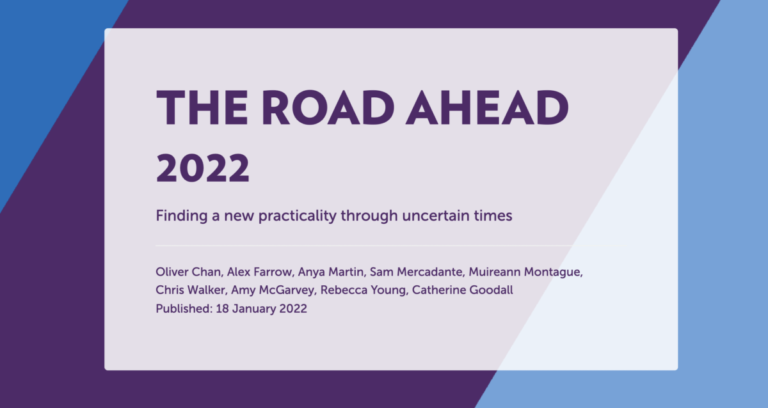Tough 2022 could see fewer people give while demand for charity services keeps rising

Pressures on local government finances and household incomes mean charities are likely to see fewer people donate this year, NCVO’s The Road Ahead 2022 has warned.
The report, published today, summarises the key drivers shaping the sector: political, economic, social, technological, environmental and legal. For the first time this year, NCVO involved external stakeholders in the development of the report, including through members assemblies and workshops with infrastructure partners.
Overall, it finds that the voluntary sector can expect a level of constant uncertainty in 2022 alongside a potential drop in donations and increased demand for services as people struggle. However, it says, the sector should still be optimistic about its ability to support society and confident about speaking up on key issues. It also expects to see opportunities for the sector to contribute to the ‘levelling up’ agenda.
Advertisement
Economic considerations
Economic considerations include high inflation and rising living costs, as well as a labour market in flux. These, the report says, are putting increased pressure on the finances of both households and charities, with the emergence and exacerbation of inequalities highlighted as a key trend.
Fundraising in the year ahead
With fewer people potentially giving, NCVO suggests that charities look for trends in their donation income and how they can maximise the potential of their most common donation sources, and expand into new areas.
The report also warns that with cashless giving on the rise, digital and hybrid fundraising events here to stay, and the Code of Fundraising Practice review including a particular focus on digital, charities will need to monitor these developments as they consider how to adapt post-pandemic fundraising activities, as well as upskill staff and volunteers.
More trends
Also of note, key political drivers include the continuation of the culture war – the report argues that public opinion “has proved to be more nuanced” on many issues than the standard ‘woke vs anti-woke’ narrative would imply, meaning that charities will be most successful when they attempt to bridge some of these divides and create consensus. It also notes that charities and social enterprises may find “significant opportunities” to contribute to ‘levelling up.
On technology, the report reflects on which services should continue to be delivered digitally; the importance of charities having the right cybersecurity and remote working arrangements; and the opportunities for those charities which embrace AI, machine learning, 5G and other new technologies.
The environmental chapter highlights how responses to the Covid-19 pandemic have provided valuable lessons in how to respond to crises such as climate change, and sustainable practices already introduced by many charities, while a number of changes to charity law arising from a new Charities Bill are among legal trends.
Alex Farrow, Head of Networks and Influencing at NCVO, commented:
“As we start 2022, we’re once again in the grip of uncertainty as the pandemic continues to twist and turn. But, though it might feel like it, the start of 2022 is not the same as January 2021. A new practicality is emerging across charities and communities, bolstered by confidence created by the speed of the scientific response to the pandemic.
“Despite everything, there are decisions and choices to make. All those running charities still have agency and power – both in what they do and how they do it. Our analysis is here to help leaders, trustees and communities make informed decisions about their future and find that new practicality.”
WATCH: The Road Ahead 2022 online launch event



